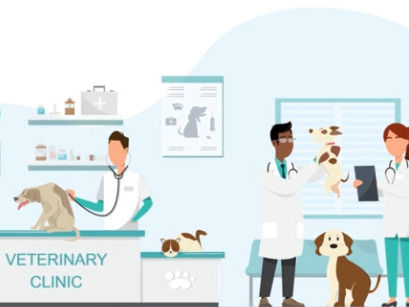Genetic causes of canine mammary tumors
Advertisement
Various forms of cancer are one of the most common causes of death in dogs today. But both diagnosis and methods of treatment for cancer in dogs and cats have developed dramatically in recent years. In his doctoral dissertation at SLU, the Swedish University of Agricultural Sciences in Sweden, veterinarian Patricio Rivera identifies various risk factors for developing mammary tumors in dogs. Genetic causes, among others, contribute to the outbreak of the disease in certain breeds, including English Springer spaniel, Doberman, boxer, and German shepherd.
Even though this research focused on mammary tumors in dogs, there has been a human connection in many of his studies. Mammary tumors in female dogs are three times more common than breast cancer in women. Patricio Rivera found that spaying reduces the risk of mammary tumors and that the age of the dog when it is diagnosed and the type of mammary tumor both affect the survival period of the animal.
By studying the ten genes that cause breast cancer in women, he found that the two most common genes in humans, BRCA1 and BRCA2, also contribute to the risk of mammary tumors in female English Springer spaniels. In dogs he also found a variant of a gene, a so-called haplotype, tied to the immune defense that had a protective effect against mammary tumors. Female English Springer spaniels that carry this gene have a lower risk of developing mammary tumors than others of the same breed.
“It’s my hope that this research will ultimately be of significance both for women and female dogs when it comes to diagnosis and treatment,” says Patricio Rivera.
The earlier tumors are discovered – the better the prognosis for survival. Just as women should examine their breasts, dog owners are recommended to regularly check their female dogs for lumps.
In his research, Patricio Rivera collected blood samples from 600 female dogs between the ages of two and fourteen years of the English Springer spaniel breed and a number of dogs of other breeds. By comparing the genes of sick and healthy dogs, he found gene variants that impact the risk of developing mammary tumors in the breed under study.
“At present there are no genetic tests that can tell us which dogs carry genes that predispose them for mammary tumors, but I hope to be able to continue to do research on this,” says Patricio Rivera.
















































